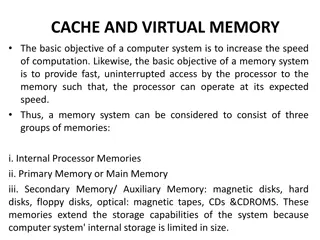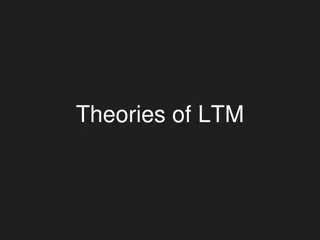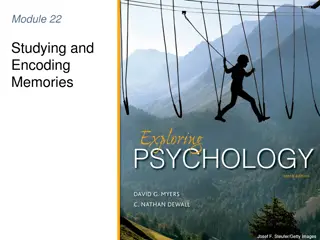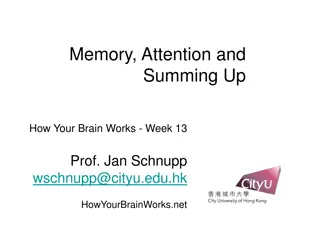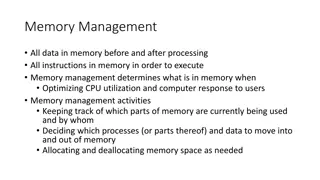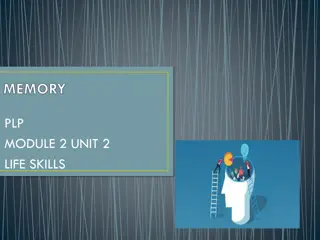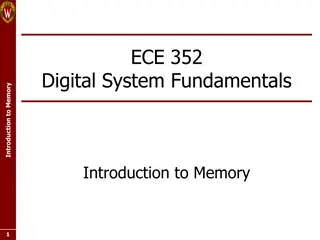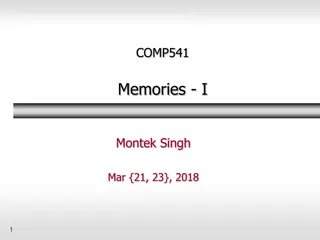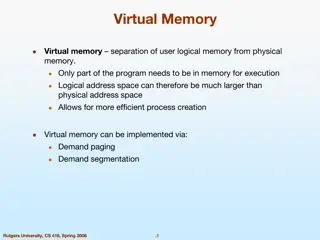Theories of Long-Term Memory: Types and Evidence
The theories of long-term memory propose the existence of qualitatively different memory subsystems, such as semantic and episodic memory. Evidence for these theories mainly comes from clinical case studies looking for dissociations between different types of memory. This quiz explores the complexities of long-term memory and the challenges of experimentally demonstrating the separateness of semantic and episodic memories.
Download Presentation

Please find below an Image/Link to download the presentation.
The content on the website is provided AS IS for your information and personal use only. It may not be sold, licensed, or shared on other websites without obtaining consent from the author. Download presentation by click this link. If you encounter any issues during the download, it is possible that the publisher has removed the file from their server.
E N D
Presentation Transcript
Retrieval practice Quiz - theories of LTM psychlotron.org.uk
Theories of LTM Main claim: that there are qualitatively different types of LTM which represent separate LTM subsystems. Difficulty: In an experiment, we expose PPs to a set of stimuli. This creates: 1. Semantic memory of the content of the stimulus; 2. Episodic memory of the circumstances of exposure. (Compare - what you stored from last lesson) Recall can be of 1, 2 or an educated guess Practically impossible to separate the semantic & episodic memory, so psychlotron.org.uk can t show experimentally that S and E memories are different.
Theories of LTM Most evidence comes from clinical case studies. We look for dissociations between E, S and P memories. i.e. does anything affect one but not the others? Dissociations imply existence of separate LTM subsystems. BUT Need to be cautious when relying on clinical case studies psychlotron.org.uk
Studies relating to theories of LTM Milner et al (1968) Ostergaard (1987) Shallice & Warrington (1974) Tulving (2002) Varga-Khadem et al (1997) NB. One of these studies does not belong! psychlotron.org.uk





